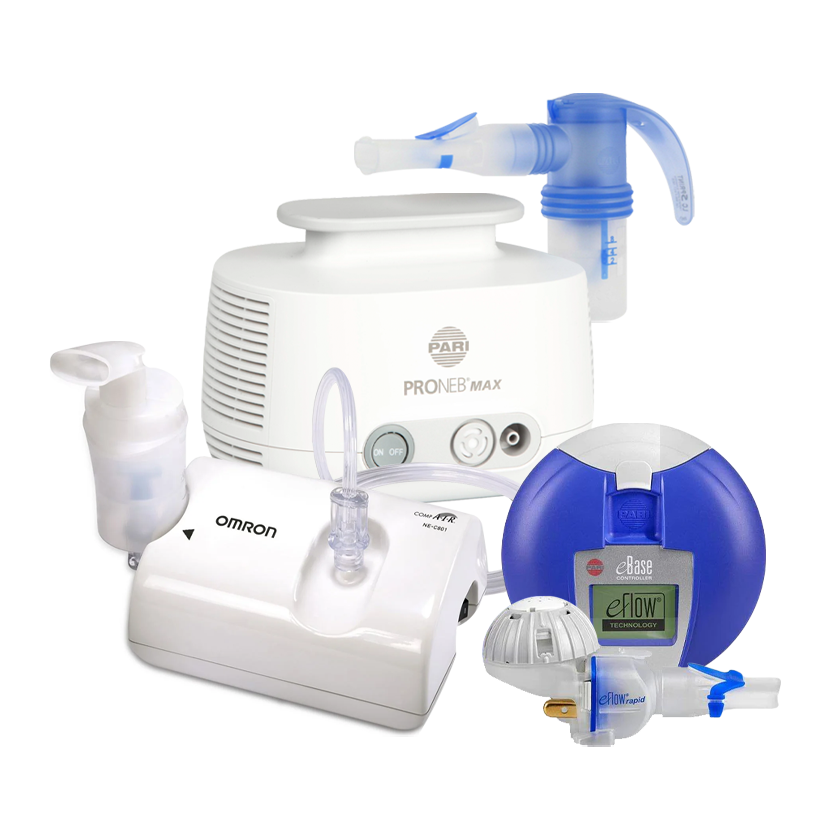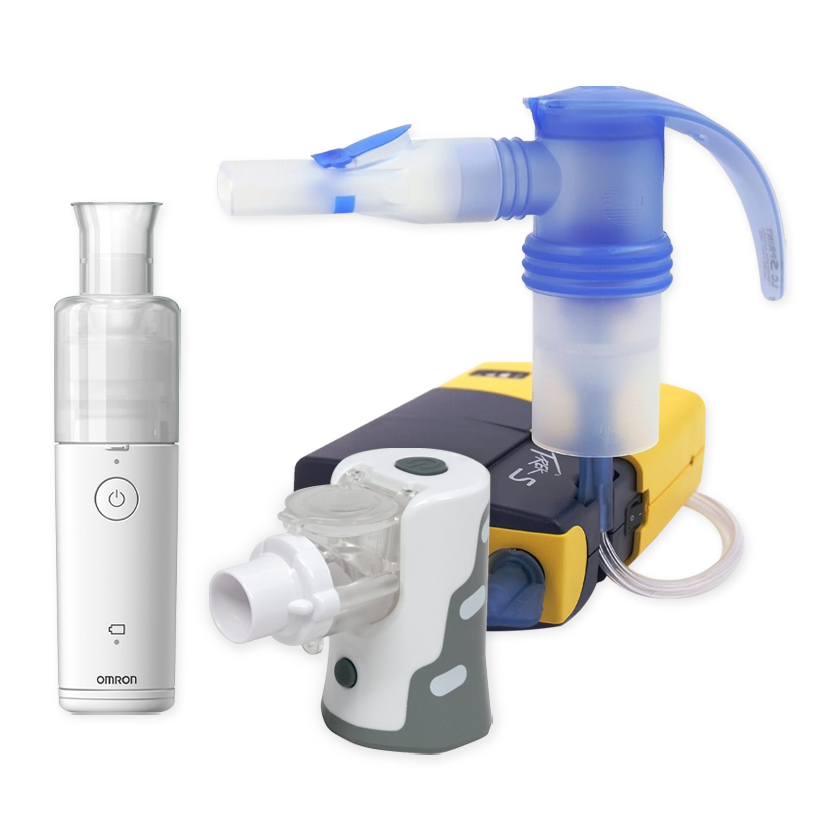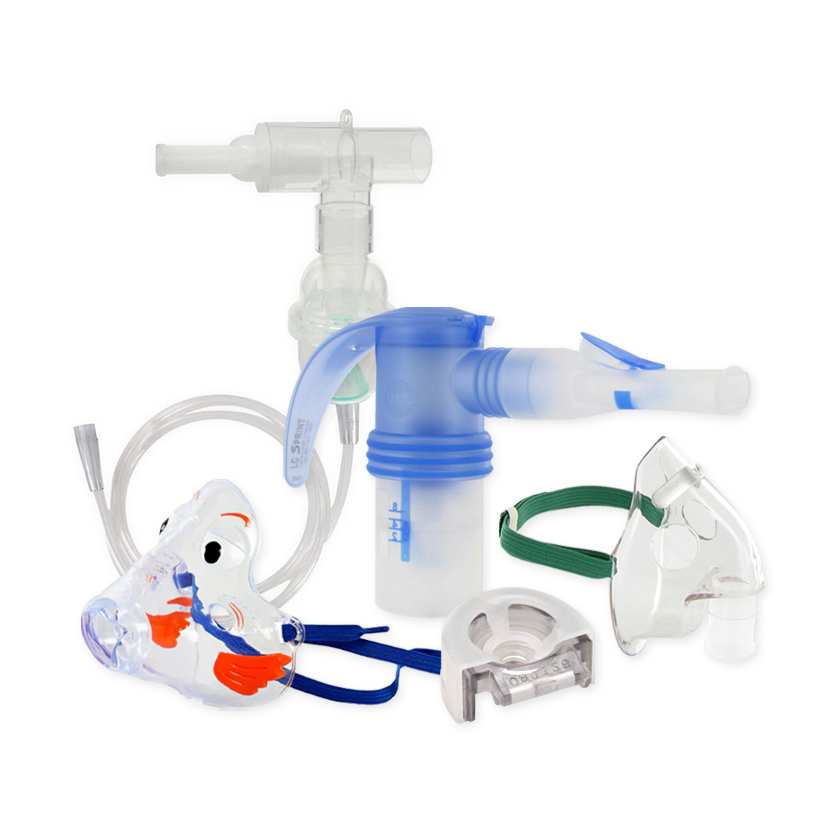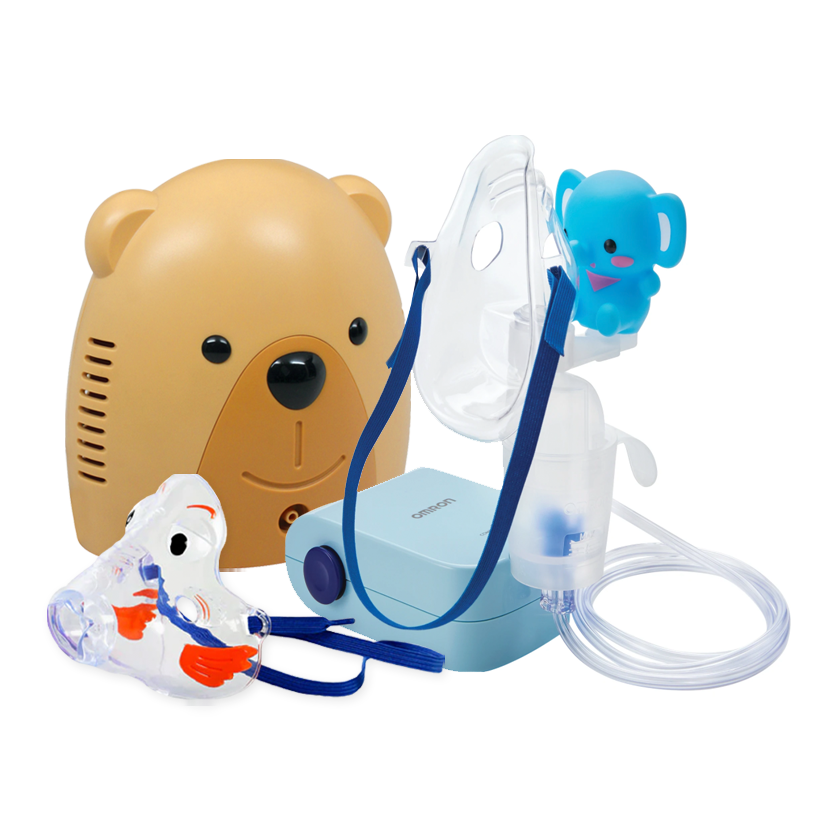Your Cart is Empty
Free Shipping on all orders over $75! Plus, free express shipping on select items.
Menu

Free Shipping on all orders over $75! Plus, free express shipping on select items.
Nebulizer Systems
Travel Nebulizers
Nebulizer Accessories
Just For Kids
Oxygen Supplies
Humidifiers vs. Vaporizers: What’s the Difference?
September 08, 2016 1 min read
I see you sell humidifiers. Can you tell me the difference between a humidifier and a vaporizer?
Humidifiers and Vaporizers share many similarities. They both create a mist and add moisture to the air around you. This can help combat symptoms such as dry nasal passages, nosebleeds, congestion, and itchy skin.
Pediatric vs. Adult Nebulizers: What’s the Difference?
August 11, 2016 2 min read
How are the children's nebulizers mechanically different from the adult nebulizers? Can my child use a nebulizer meant for an adult?
There are no mechanical differences between children’s nebulizers and adult nebulizers. Both children and adults can use either type of nebulizer.
The Best Nebulizer for Colloidal Silver
June 30, 2016 1 min read
People often ask us, “Which nebulizer is best to use for colloidal silver?”
First, a warning about colloidal silver. According to the Mayo Clinic, “Colloidal silver isn’t considered safe or effective for any of the health claims manufacturers make. Silver has no known purpose in the body.”
Benefits of Using a Portable Oxygen Concentrator
December 03, 2015 1 min read
If you have severe COPD (Chronic Obstructive Pulmonary Disorder) and low levels of oxygen in your blood, a portable oxygen concentrator (POC) can help you live a longer, healthier life.
Benefits: Oxygen therapy is known to give patients more energy, and reduce the risks of heart failure and lung disease.
How to Treat COPD
March 20, 2015 1 min read
COPD (chronic obstructive pulmonary disease) has been in the news these past couple weeks, after Leonard Nimoy, famous for playing Spock on Star Trek, died of the disease at age 83. Unfortunately, there is no cure for COPD. But there are things you can do to slow its progress, feel better, and live a more active lifestyle.
Read MoreHow to Tell the Difference Between the Flu and a Cold
January 08, 2015 2 min read
Flus and colds are two of the most common asthma triggers, and unfortunately it’s flu season once again. These two illnesses share many similar symptoms-- runny nose, sore throat, coughing, etc. But the treatments are somewhat different, so it’s helpful to know which you have. How can you tell?
Read More5 Tips for Dealing with Fall Allergies
November 21, 2014 1 min read
It’s fall allergy season, and people all across the country are sniffing and sneezing. This is especially true in the area from the south Midwest to the Southeast, which is affectionately known as the “Pollen Belt” because it has the highest pollen counts in the country.
Read MoreThe Do’s and Don’ts of Dealing with Ragweed
August 08, 2014 1 min read
Ragweed, one of the most common summer/fall allergy triggers, usually arrives in mid to late August, bringing with it much sneezing and congestion. For those with asthma, it may make symptoms worse or even trigger asthma attacks. Fortunately, there are some things you can do and some things you should avoid doing to help keep your allergic reaction under control.
Read MoreHow to Prevent Summer Allergies
May 09, 2014 2 min read
Summer may not be as well known for seasonal allergies as the spring and fall, but it still brings many triggers that those with allergies and asthma should avoid.
Read More15 Tips for Avoiding Spring Allergies
April 18, 2014 2 min read
Spring is here! Which means plenty of sunshine, rain and unfortunately--pollen. But don’t worry; by taking these precautions you can limit your exposure to pollen and enjoy the springtime without your allergies going crazy.
Read MoreUnapproved Nebulizer Medications Being Illegally Manufactured
March 21, 2014 1 min read
Recently, shady pharmacies have been illegally manufacturing nebulizer medications not approved by the FDA, then tricking physicians and patients into buying them thinking these medications are the real thing.
Read MoreHow to Avoid Colds and Flus in the Winter
February 28, 2014 2 min read
Colds and flus can be especially problematic for those with asthma or other respiratory conditions. Since your airways are already sensitive, the virus does more damage. And this time of year, cold and flu viruses are abundant. Fortunately, there are some things you can do to avoid getting sick even during winter.
Read MoreSubscribe
Sign up to get the latest on sales, new releases and more …

NEW CUSTOMERS SAVE 10% OFF YOUR FIRST PURCHASE OF $20 OR MORE.
Code will be sent to email entered if applicable
SIGN UP FOR FUTURE SALES, NEW PRODUCTS AND ANNOUNCEMENTS
{"themeColor":"#061f77","iconColor":"#061f77","showLogo":true,"topBottomPosition":0,"rightLeftPosition":5,"iconSize":"large","iconCustomSize":64,"position":"middle-right"}



